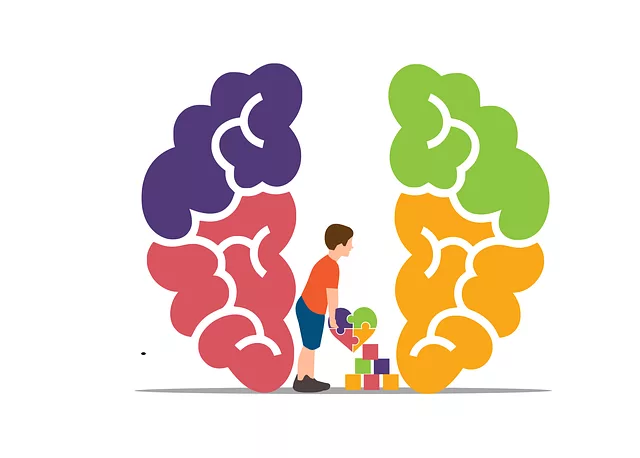The Parker Kaiser Permanente (PKP) mental health department offers a comprehensive crisis intervention strategy, combining evidence-based practices with holistic approaches. Their multi-faceted approach includes immediate support, stabilization, and long-term treatment for all ages, using techniques like active listening, Mental Wellness Journaling Exercises, and Mood Management to enhance emotional well-being. The PKP mental health department's resources, such as individual therapy, group counseling, community outreach, and innovative education programs, aim to build resilience and improve mental health outcomes by educating the public on recognizing distress signs and promoting available support. Future strategies should focus on refining these techniques, ensuring accessibility, and incorporating digital tools.
In times of crisis, effective intervention can make a world of difference. This article explores crisis intervention strategies, guided by the exemplary practices of the Parker Kaiser Permanente Mental Health Department, which serves a diverse patient population with comprehensive services. We delve into key strategies proven to de-escalate situations and provide long-term support, highlighting best practices that professionals can implement. Additionally, we discuss future directions for enhancing crisis guidance based on emerging research and trends in mental health care.
- Understanding Crisis Intervention: A Brief Overview
- The Parker Kaiser Permanente Mental Health Department: Role and Services
- Strategies for Effective Crisis Intervention
- Implementing Guidance: Best Practices and Future Directions
Understanding Crisis Intervention: A Brief Overview

Crisis intervention is a crucial aspect of mental health support, designed to provide immediate assistance during times of severe distress or impending danger. It aims to stabilize individuals and prevent further deterioration, offering a lifeline in moments of crisis. The concept is rooted in the understanding that timely intervention can significantly impact long-term outcomes for those struggling with mental health issues, such as depression, anxiety disorders, or even suicidal ideation.
Parker Kaiser Permanente’s mental health department has pioneered effective crisis intervention strategies, including a range of evidence-based practices. Their approach involves not only addressing acute symptoms but also focusing on burnout prevention and emotional well-being promotion techniques. This holistic strategy includes Social Skills Training to enhance coping mechanisms and build support networks, ensuring individuals can navigate future challenges with increased resilience.
The Parker Kaiser Permanente Mental Health Department: Role and Services

The Parker Kaiser Permanente Mental Health Department plays a pivotal role in providing comprehensive and accessible mental health services to its community. This department is dedicated to addressing a wide range of psychological and emotional needs, offering specialized support for individuals facing various challenges. Their primary focus includes crisis intervention, prevention strategies, and long-term treatment plans.
With a team of experienced professionals, the department delivers an array of services tailored to different age groups and populations. These include individual therapy sessions, group counseling, community outreach programs, and innovative Mental Health Education Programs Design aimed at promoting resilience and coping mechanisms. The Parker Kaiser Permanente Mental Health Department also emphasizes the importance of Stress Reduction Methods, empowering individuals to manage their well-being effectively. Additionally, they organize workshops and seminars to boost confidence and foster a supportive environment for those navigating mental health issues.
Strategies for Effective Crisis Intervention

Effective crisis intervention strategies are crucial for addressing acute mental health issues, such as those handled by the Parker Kaiser Permanente mental health department. These strategies focus on immediate support and stabilization to prevent escalation and promote recovery. One key approach is active listening, where professionals engage in empathetic conversation, validating the individual’s emotions without judgment. This simple yet powerful tool helps build trust and allows for better understanding of the crisis.
Additionally, structured guidelines like the Mental Wellness Journaling Exercise Guidance can be beneficial. Encouraging individuals to document their thoughts and feelings during a crisis provides them with a sense of control and offers professionals valuable insights. Public Awareness Campaigns Development also plays a significant role in early intervention by educating the public on recognizing signs of mental distress and promoting resources available for support, thereby fostering an environment of care and understanding.
Implementing Guidance: Best Practices and Future Directions

Implementing guidance for crisis intervention strategies is a critical step in supporting individuals facing mental health challenges. Drawing from the expertise of the Parker Kaiser Permanente mental health department, several best practices have emerged. One key practice involves integrating Mood Management techniques, which aid in stabilizing emotions during crises and promoting emotional healing processes. These techniques can be effectively taught through structured programs and personalized counseling sessions.
Additionally, encouraging clients to engage in Mental Wellness Journaling Exercises has proven beneficial. This practice allows individuals to reflect on their experiences, track their moods, and identify triggers, fostering a deeper understanding of their emotional patterns. Future directions for crisis intervention guidance should focus on refining these strategies through research-backed methodologies, ensuring accessibility for diverse populations, and incorporating digital tools to enhance support, especially in light of the evolving landscape of mental health services.
Crisis intervention strategies, as exemplified by the comprehensive services offered by the Parker Kaiser Permanente Mental Health Department, play a vital role in supporting individuals during challenging times. By employing evidence-based techniques and fostering a culture of care, professionals can effectively navigate crises. The success of these interventions relies on prompt access to resources, continuous training for personnel, and integrating diverse strategies tailored to individual needs. As the demand for mental health support continues to grow, organizations like Parker Kaiser Permanente serve as a beacon, guiding best practices and shaping the future of crisis intervention services.




